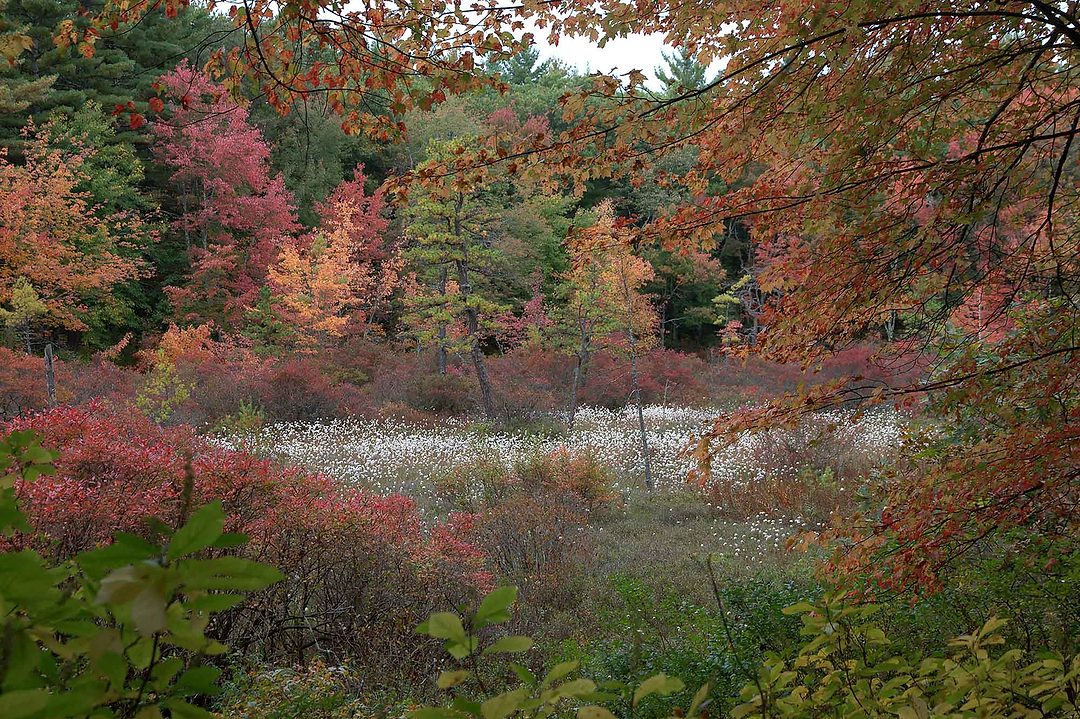In the early 1960’s a high school freshman watched a quiz show, “College Bowl.” Little did he know how that random act would change his life. Many years later, he tells the story: “The moderator asked what noted book began with the following words. Before he had said fifteen words, one of the college whiz kids gave the correct answer — Walden by Henry David Thoreau. Then the moderator read the complete sentence, which captivated me”
It was the first line in Thoreau’s iconic work: “When I wrote the following pages, or rather the bulk of them, I lived alone, in the woods, a mile from any neighbor, in a house which I have built myself, on the shore of Walden Pond, in Concord, Massachusetts, and earned my living by the labor of my hands only.”

Ray Angelo, Fairhaven Cliff, 1981
That high school freshman was Ray Angelo. “I got hold of Walden, read it, and was instantly attracted to Thoreau’s values of independence, simplicity, and deep appreciation for the natural world of Concord and New England,” he said. Mr. Angelo would devote much of his life to the study of Henry David Thoreau, Thoreau’s friend Minot Pratt (a co-founder of Brook Farm, one of the more successful nineteenth century utopian communities), and their shared passion for the flora and fauna of Concord.

Lime Quarries, Estabrook Woods
Mr. Angelo’s interest has manifested itself in many ways: as co-curator of Natural History Collections for Harvard University’s Concord Field Station (1976-1999) and assistant curator, and then curator, of Vascular Plants for the New England Botanical Club (1979-2008). He continues to be an associate of the Harvard University Herbaria and is a regional reviewer for the Flora North American project. Mr. Angelo has several published works related to trees and shrubs of the Concord area, along with the Catalog of Plant Specimens and Index for Emily Dickinson’s Herbarium, and a Botanical Index to the Journal of Henry David Thoreau.

Fairhaven Cliff
His most recent project (which is ongoing) pinpoints as many of Henry David Thoreau’s place names in Concord and Lincoln, Massachusetts as possible using latitude and longitude coordinates applicable with Google Maps. Entries are supplemented with commentary and all Thoreau journal references. The title of the project is Place Names of Henry David Thoreau in Concord, Massachusetts (and in Lincoln, Massachusetts) & Other Botanical Sites in Concord. This illustrated document is available free online at www.ray-a.com. With this remarkable resource, any Thoreau enthusiast can create their own pilgrimage, exploring the places where Thoreau walked.
Currently residing in Ipswich with his wife, Erika Sonder, Mr. Angelo came to Concord in the late 1970s and spent eight years studying the same trees, shrubs, and wildflowers of which Thoreau had written. “When I finally started exploring Concord after having read through Thoreau’s complete journal twice, I felt so honored to be treading the same paths and seeing descendants of the very same trees, shrubs, and wildflowers that he admired,” Mr. Angelo said. “And I was thrilled to find some notable ones that were certainly there in his time but missed by him.”

Asked to imagine what it might have been like to live in Concord during the time of transcendentalism, Mr. Angelo mused, “Alas, if I had lived in Concord in the time of Thoreau, I know I would not have been able to keep up with them. Certainly, if not overburdened with making a living I would have been delighted to explore on my own and share whatever discoveries I might happen to make that they might not have already known about.”
With the publication of his work on places Thoreau had visited and referenced in his journal, Mr. Angelo has provided a wonderful resource to those who wish to follow in the footsteps of the transcendentalist naturalist. “My hope is that Thoreau devotees might use my reference to understand where everything is in Concord and adjacent towns to which Thoreau refers, often using his own coined names. He added, “I envision the possibility that my reference might help Concord residents and fans of Concord appreciate many of the secluded, natural locales that Henry David Thoreau treasured that still endure.”
Photos © 2020 Cherrie Corey


